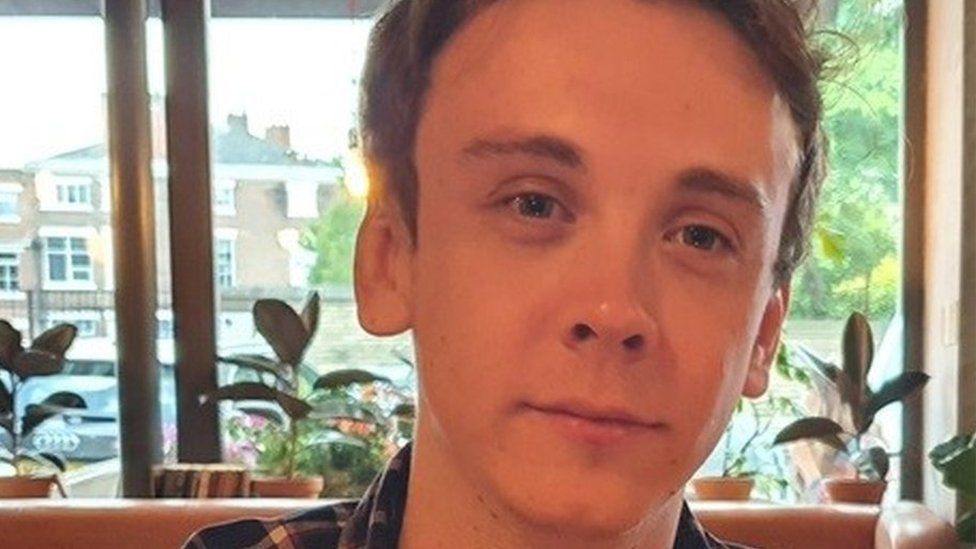
Jacob Billington worked as a library intern at Sheffield Hallam University
By Andy Giddings
BBC News, West Midlands
Multiple failings allowed a violent man to be freed from prison and go on to stab a man to death in Birmingham, an inquest has ruled.
Jacob Billington’s mother said no lessons had been learned between her son’s death in 2020 and the Nottingham attacks last summer.
McLeod, who had paranoid schizophrenia, carried out a stabbing spree across Birmingham city centre.
Coroner Louise Hunt highlighted extensive failures by the prison and probation services and said she would recommend offender management changes.
McLeod was known to be a violent offender and Ms Hunt said agencies had failed to communicate effectively and had not prepared properly for his release from prison.
His trial heard he had not been in contact with mental health teams after being released in April, five months before the attacks that also saw him injure seven others over a 90-minute period.
‘Face-to-face with evil’
He even caught a taxi home part-way through his killing spree, to pick up another knife before returning to the city centre.
Mr Billington, from Crosby, Merseyside, had been working as an intern at Sheffield Hallam University at the time of his death.
He had been enjoying a night out with friends and his father, Keith, said the group “were just going back to their hotel” when they came “face-to-face with evil”.
McLeod stabbed him on Irving Street in the early hours of 6 September.
His attacker had been diagnosed with paranoid schizophrenia in 2012, but had not taken his prescribed medication either inside or outside prison.
Image source, West Midlands Police
Zephaniah McLeod admitted a charge of manslaughter and four counts of attempted murder
He had been wanted by police since the previous September over an alleged assault on a police officer, while his family members had expressed concerns over him a year earlier.
Like McLeod he had been prescribed anti-psychotic medication but stopped taking it.
Mr Billington’s mother, Joanne, said there was a wider issue around managing severely mentally ill individuals.
She said there appeared to be similarities between her son’s death and the stabbings in Nottingham.
Mrs Billington added that learnings from a serious case review after her son’s death “do not seem to have been put in place or made any changes at all” to the way agencies worked together.
“Agencies need to be staffed, managed and monitored adequately in cases like ours and other recent cases. If not, this will continue to wreck innocent people’s lives,” she said.
She added her son’s death was “every parent’s worst nightmare” and described him as “a fantastic young man who lost his life in horrific circumstances”.
“Going forward, I’m hoping that I can help people in similar situations in some way just to honour Jacob’s memory, because he certainly didn’t deserve to die in the way he did,” Mrs Billington said.
Image source, PA Media
Joanne Billington (left) spoke to the media outside Birmingham Coroners’ Court alongside Anne Callaghan (right)
Anne Callaghan, the mother of Jacob’s best friend Michael, who was left partially paralysed after being stabbed in the neck during the attacks, said: “It is depressing seeing the lack of communication and information sharing.
“The lack of public protection is frightening.”
Marjorie Wallace CBE, chief executive of mental health charity Sane, said the case and its failings beggared belief.
“We have had a very threadbare mental health services for very many years,” she said.
“The same sad litany of failures has led to tragedies. Lessons simply don’t seem to be learned.”
Image source, Family
Michael Callaghan was left partially paralysed after being stabbed in the neck
Despite being deemed a high risk of causing serious harm to other people, McLeod had been released from HMP Parc in South Wales in April 2020 after a three-year prison sentence for drug and firearm offences.
He was also released without any support in place for his mental health and with no fixed address.
The two-week inquest, which found Mr Billington was unlawfully killed, heard McLeod had long reported hearing voices telling him to kill or stab people.
Follow BBC West Midlands on Facebook, X and Instagram. Send your story ideas to: newsonline.westmidlands@bbc.co.uk

